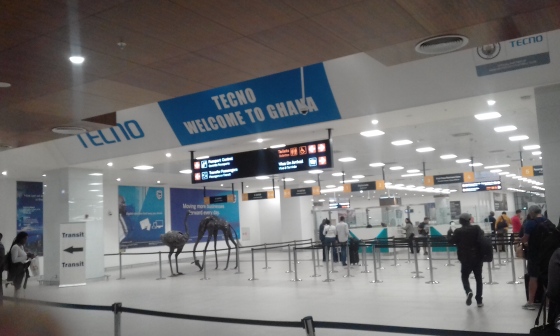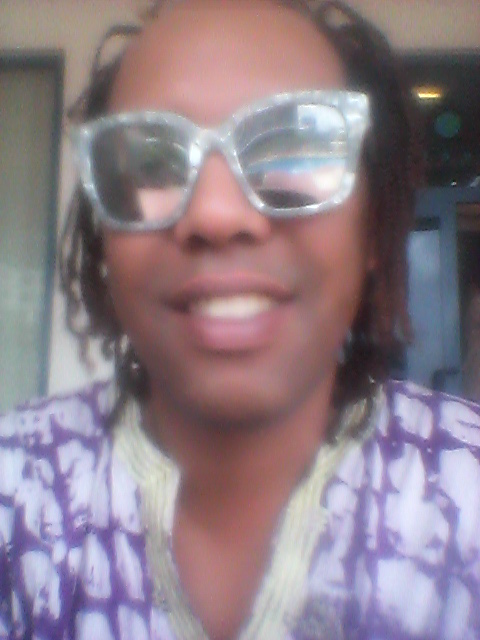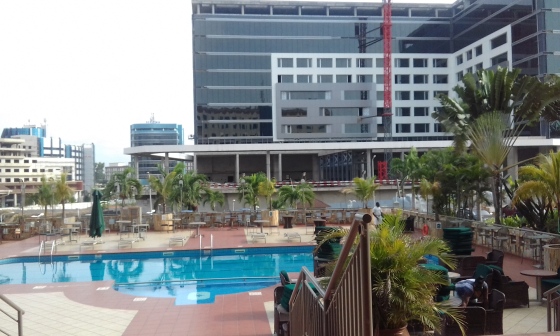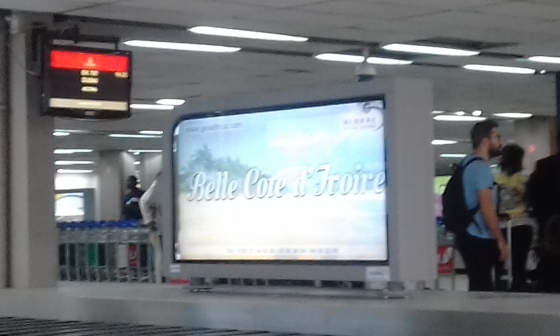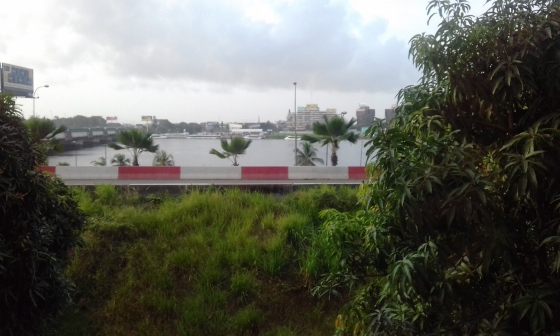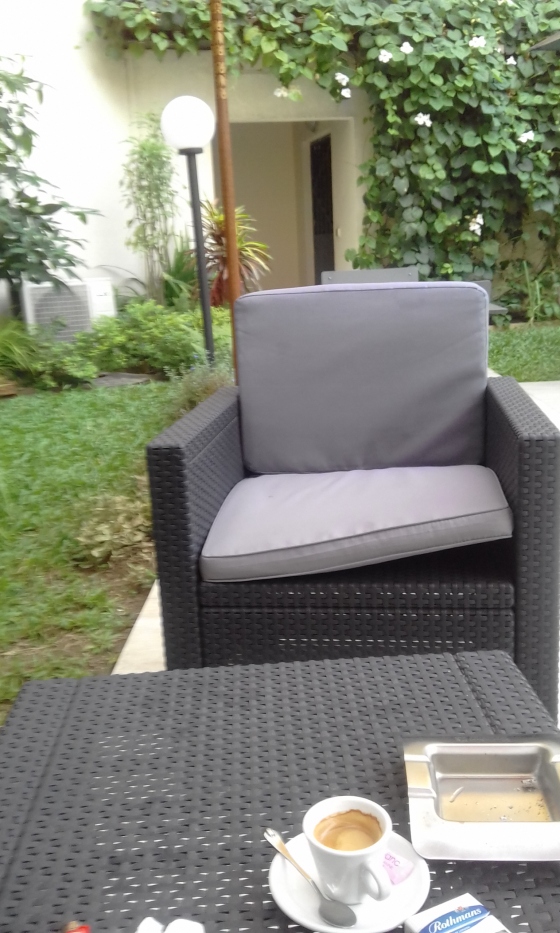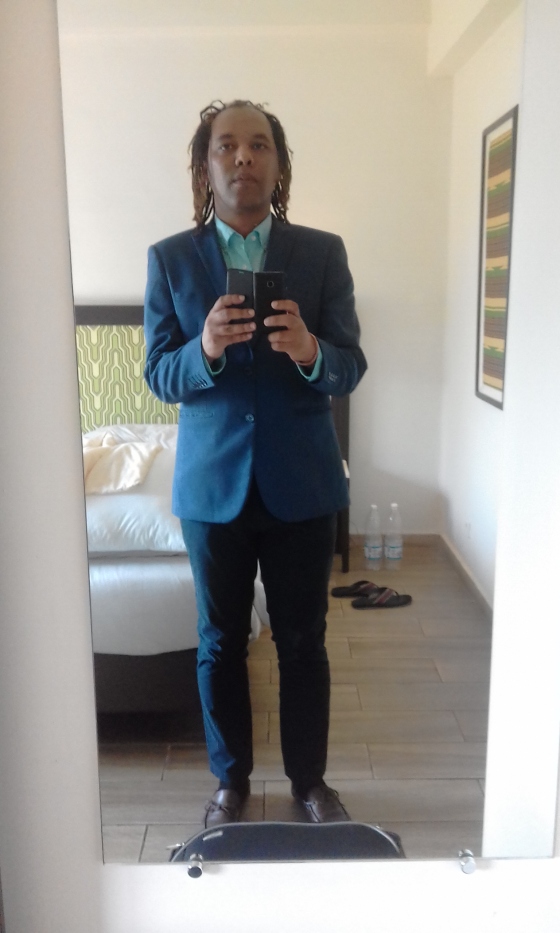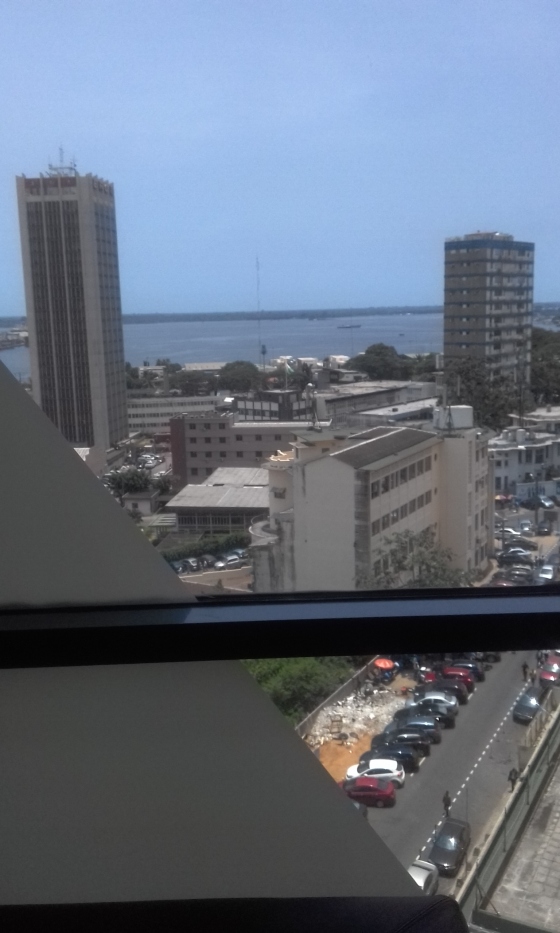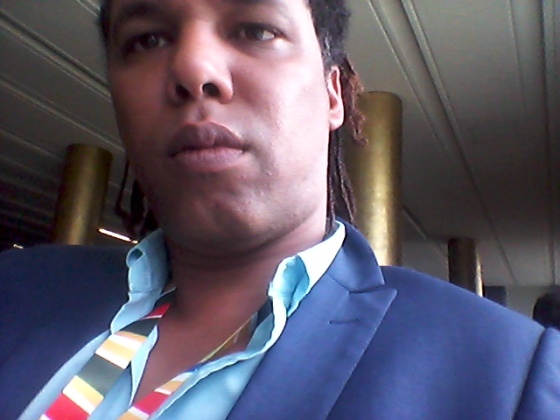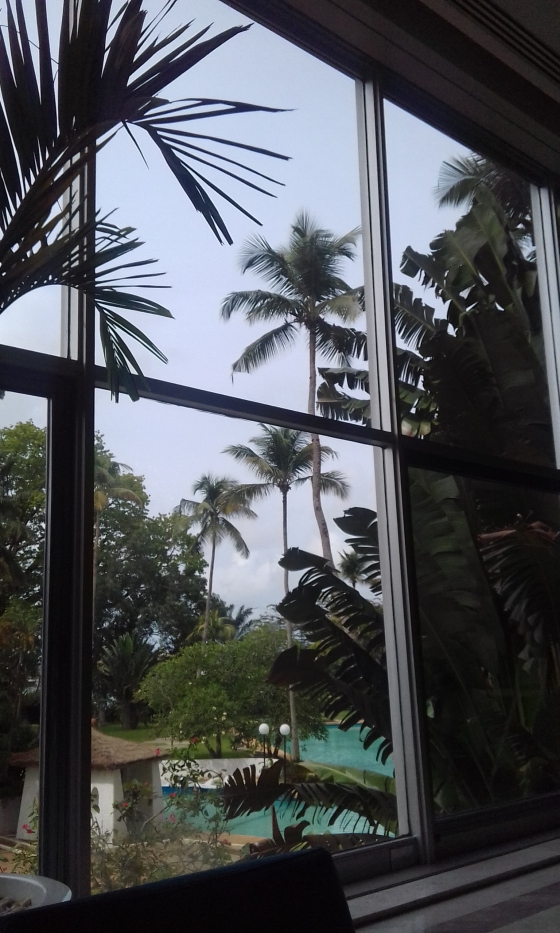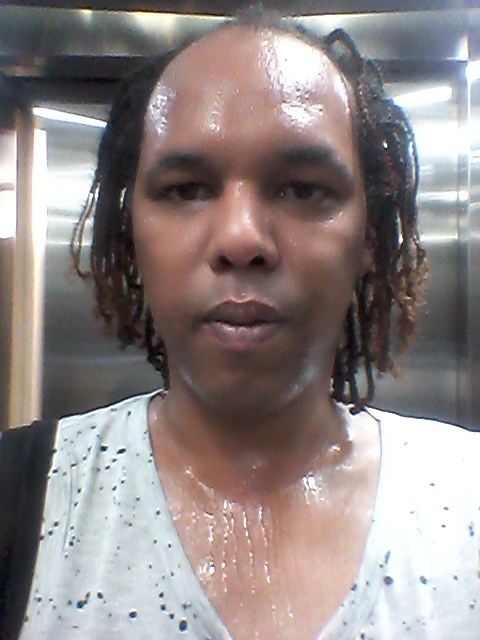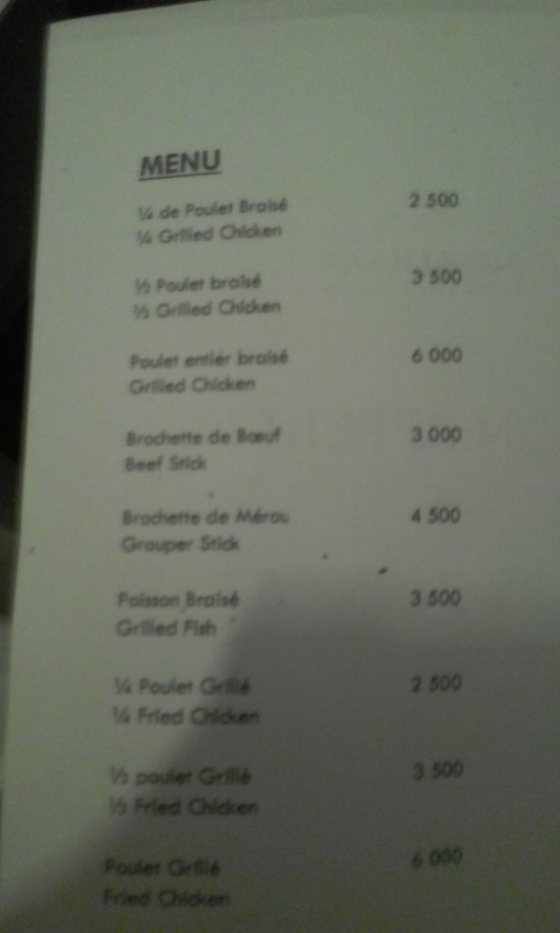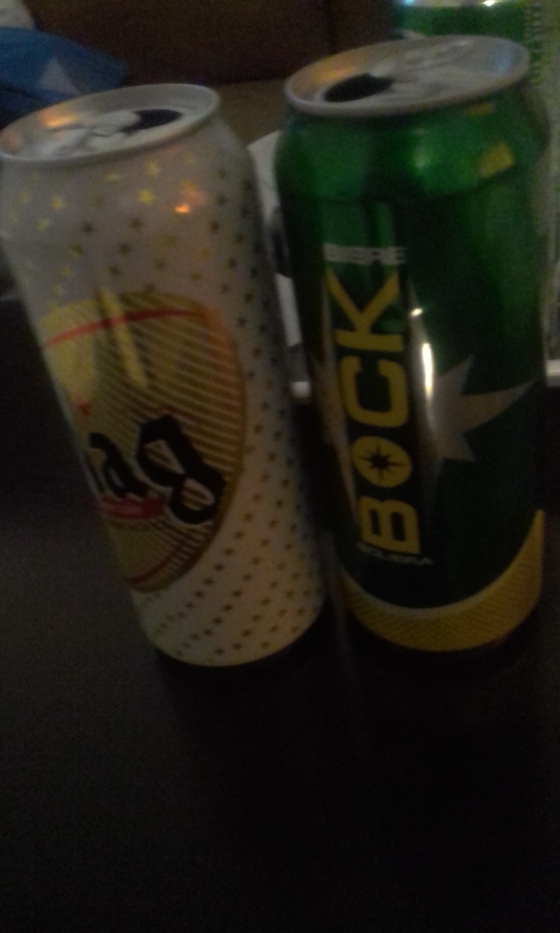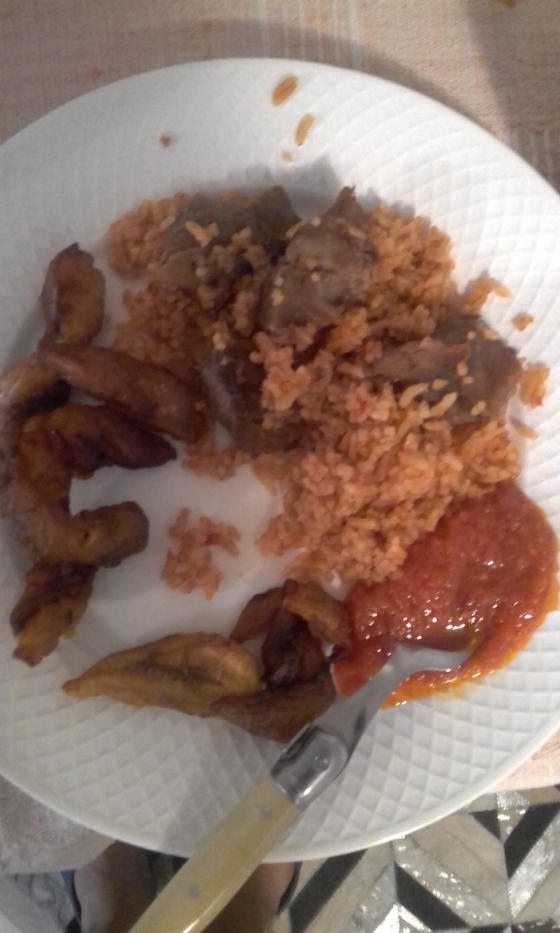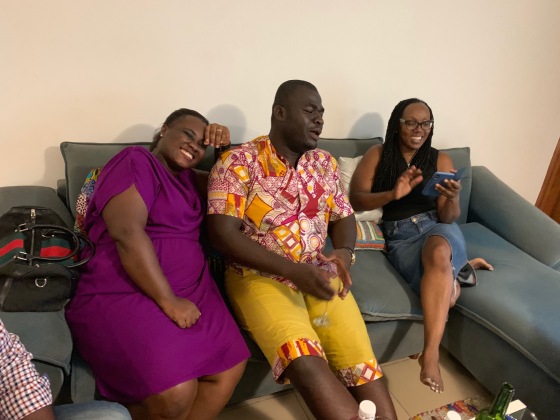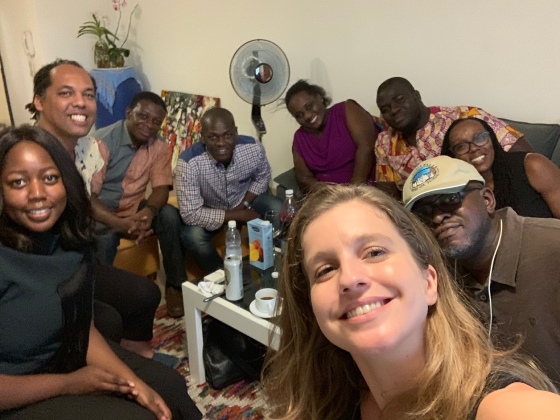You could see the little boy he was. Once was. There was a tenderness where the wounds had been. And now, as a grown man, he shielded it with layers of muscle, making sure that his body was strong and hefty.
But he was the same boy whose mother had left him with strangers while she nurtured some more convenient dream.
(“I’m doing this for you,” she would say each time she left him. “I’m doing this so one day you will be free. I’m not abandoning you. I love you.”)
He never understood. Aunts, uncles, neighbours. They would tell him all the time how clever he was. But he never understood. Never understood. And he never lost that sense of being an outcast. More than unwanted – extraneous. Like nobody had given birth to him. Like he was dropped by some alien force onto this otherwordly planet. He would often stare at her picture and marvel at how beautiful she was. There was no way he could be hers. It was impossible.
He had always loved girls, their softness, their elegance, the luxury of all the fuss that accompanied their being: the effort of their dress, their hair, their make-up.
As a young man he even enjoyed the care he had to take when a woman was menstruating; the fact that he had to choose his words so carefully and judge with thoughtfulness and precision when to approach her and when to leave her alone. When to coo.
But with boys he found the greatest intimacy. They brought out a tenderness in him that he could neither predict nor halt. It flowed from him so naturally. It flowed from him like charm.
A university friend was the first boy to make him aware of this untapped chamber of emotion.
They were rugby teammates. Both boys enjoyed the sport immensely but took it less seriously than the other players. They had excelled at the game at school and gave their all on the pitch. But they pursued it more with heart than ambition – for the sheer gutsy, gladiatorial thrill.
On that score alone, which ran deeply in both boys, they had connected instantly.
Their kinship soon grew beyond sharing triumphs. They became comfortable enough to exchange the inevitable traumas of boyhood. The first time they lost a close friend, the first time his friend’s heart was broken by another boy.
They spoke about his deep sense of isolation as he longed for his mother and the estrangement the other felt after he told his family that he was gay; how they both had cried on their first day of “big school”. They even discussed the sting of having a favourite toy broken by a sullen neighbourhood boy.
They spent nearly every available moment together. When they weren’t in class or home for the holidays, or out on dates… They often shared a bed on nights when they had stayed over too late to study or had partied a little too hard. It became natural on these nights for the boys to embrace one another, even after his friend had told him that he was gay.
It never went beyond that, until one night of excess when he awoke to a wet sensation between his thighs. He reached down and felt his friend’s head and pulled him to the top of the bed.
“What the hell are you doing?”
“I’m sorry,” he said and suddenly started crying.
He pulled him to his chest and let him rest in the nook of his neck. Every now and again he would kiss him gently, then return his face to the nest between his cheek and collar bone. They lay like that all night.
That was the extent of their physical affection. But they largely continued as they had before and rarely attended a social event without the other, arm in arm or hand in hand, fingers intertwined.
Sometimes they might enter a party together but leave separately with their respective companions. He was also sure, though, to keep a watchful eye on his friend in order to make sure that he was in good company.
Except for the occasional stare or sneer, their closeness became inevitable and accepted.
****************************************
He was like the landscape, a great expanse of lush fields and hills – stark and sweeping in its beauty.
He needed that kind of largesse. His lungs opened up and his spirit soared. He could write poetry and songs there. Uninterrupted by the clutter of the city, which seemed to thrive on or despite the ashes of dreams. Hopes flung like the mine dumps that haunted the outskirts of the city.
Unlike the mountains where he was from, who towered anciently. These artificial man-made heaps squatted like dreary, despairing onlookers from the sidelines of highways.
No, he preferred the place of his grandfather. Grandfathers. The place where grown-ups spoke Afrikaans in serious tones. English was reserved for the children. Unless they were to be reprimanded. Nothing smacked like the tongue of an adult in that language.
“Jou moerskond!”
Yet he couldn’t live in the country either. He was raised to seek his fortune elsewhere. To become educated and find a nice respectable job in the city, something his parents could boast about to the neighbours.
He lived to make them proud, to be the topic of their grinning conversations at family gatherings from which he was largely absent. To be the source of postcards and new appliances they could display – symbols of how well they had done to produce a city son who could shower them with material comfort.
Home was merely a retreat from the city and its squalor. He avoided the crowded bars and clubs as much as possible and preferred intimate gatherings at the homes of the few friends he had made after living in Joburg for a few years.
At one of these get-togethers he met a transgender woman called Lucky. Her uniform consisted of dungarees – long, short, denim, corduroys – together with a set of startlingly blonde braids that fell down to her behind. Equally standard was her response to some outrageous story about a mutual friend or acquaintance.
“Girl, who made the gays?” Lucky would exclaim in her approximation of a black American accent, an affectation she’d picked up from TV shows like Real Housewives of Atlanta. She would slap her thigh and let out an ear-shattering cackle as she revelled in her own wit and that of the storyteller.
**********************
I was the son my father never wanted and the daughter my mother never had.
My father denied me. And then he had the bad taste to die before I could resent him.
I was gripped by the glowing, muscular bodies parading on the pages of Gay SA – and just about to grip myself – when I received the news of his death.
“Son, son, open up!”
Her tone immediately shook me from my indulgent stupour. It sounded serious. It had to be for her to disturb me in my sanctuary, where I had been hiding from the world for several weeks, only allowing the occasional inspection by our housekeeper to clear the room of the detritus of food and dirty laundry.
“Your father is dead,” she said.
“Ok,” I replied.
A deep frown pleated my mother’s forehead. I could tell that a more pained reaction was warranted on my part.
“What happened?” I asked, both because I was genuinely curious but also because I couldn’t register any emotion, not even enough to feign sadness.
My mother had stood in where my father had failed. Every bit of me that my father had abandoned, my mother lapped up with glee. She was majestic and I never felt my father’s absence as a child, except for an endless curiosity about who he was. It wasn’t all-consuming or consistent but it would sneak up on me now and then.
Men, as a result, were always the enemy. Only when I was older did I realise that. Don’t get me wrong. I loved them. Loved them intensely and all too frequently. I was fascinated by their power, their elusiveness and their beauty that seemed to pulse off the skin.
But the fascination could never be consummated. That is to say, until I was nearly a middle-aged man. Men would remain nothing more than museum pieces to me, glassed behind a cage of aloofness and unattainability. I moved between those emotions and a dire need for their recognition, for their embrace. Just once. Just one of them.
